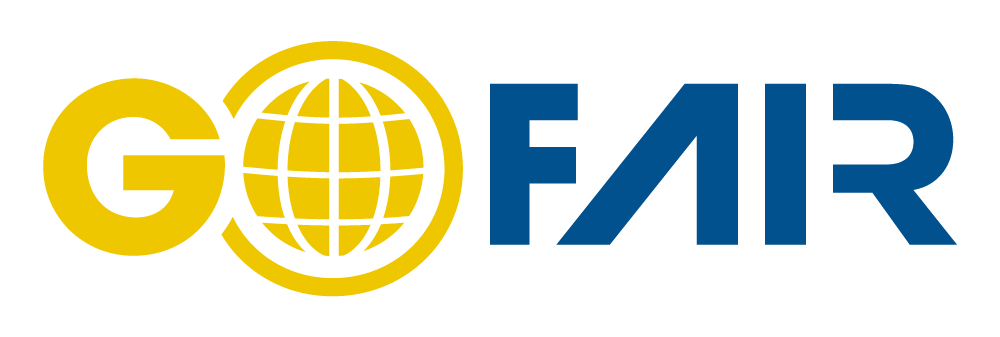
The GO FAIR International Coordination and Support Office is Operational
The International Coordination and Support Office (ISCO) of the GO FAIR initiative has been launched. It will support the GO FAIR initiative across Europe with the overall goal to contribute to the EOSC in such a way that all digital research objects comply with the four FAIR principles, effectively creating an Internet of FAIR Data and Services.

In May 2017, Germany and the Netherlands announced their initial intention to endorse the bottom-up GO FAIR initiative as a promising approach towards the development of the EOSC (PDF). France also expressed its interest as another EU Member State. At the Competitiveness Council on December 1st, in Brussels, these three countries jointly confirmed the establishment of the GO FAIR International Support and Coordination Office (GFISCO) as an important building block on the road to the European Open Science Cloud (EOSC) and the Internet of FAIR Data and Services (PDF).
On the way to the EOSC
The GFISCO starts with two locations. In Germany, one team will promote the GO FAIR initiative on a national and international level. The BMBF engaged the ZBW with the establishment of the GFISCO in Hamburg, to successfully support the initial efforts of such a community-driven initiative and to establish the FAIR principles for research data in the scientific world. In the Netherlands, the office is exclusively dedicated to the international support of the GO FAIR initiative, and a national office as well as the contribution of France is still under development. The locations will operate in practice as one coordinated unit. They will manage the GO FAIR initiative on a transnational basis throughout Europe and build a global network of scientific communities and research infrastructures over the next three years.
First tasks
The demand for FAIR data and services was evident at a first workshop with the German community and led to a lively exchange of information. Researchers and representatives from a wide variety of disciplines discussed the aims and concrete objectives of the GO FAIR initiative in the beginning of October. The results will be taken into consideration for the establishment the GO FAIR initiative, e.g.:
- Position the GO FAIR Initiative in relation to other stakeholders in research data management.
- Define criteria based on FAIR principles on which implementation networks will be evaluated as FAIR
- Develop a concrete participation model.
Responsibilities and activities of the GFISCO
One fundamental task of the GFISCO will be the set up a network of different implementation projects. Within these projects, research communities and infrastructure providers will work together to implement the FAIR principles for research data, algorithms, processes, software, workflows, etc. In this way, requirements are detected collectively, strategically important components are identified and are transferred into fair solutions.
The GFISCO will provide input and impetus for the development and implementation of cross-disciplinary scientific standards, support the alignment with FAIR Principles and promote synergies in order to develop best practices with the aim of turning them into widespread applications. In this respect, the ISCO organises workshops and sets up working groups so that discipline-specific knowledge and interdisciplinary approaches about the FAIR use of research data and services can be exchanged. These platforms will ensure interconnectivity regarding the establishment and operation of existing and future research data infrastructures.
In order to promote the initiative’s dynamics, the main operations of the GFISCO focus on supporting and coordinating activities. These are structured into the following work packages:
- Be a contact and information point for scientific communities and infrastructure developers
- Develop and establish a participation model for implementation networks
- Establish and coordinate the GO FAIR network on a national and international level
- Set up and supervise working groups to bring together discipline-specific knowledge and interdisciplinary approaches
- Monitor the infrastructure landscape to identify national and international projects and initiatives with relevance for GO FAIR
- Enable and support strategic decisions
- Communicate and disseminate project results to raise awareness of the FAIR principles and increase the visibility of the initiative
As mentioned above, in addition to its tasks at the international level, the ISCO in Hamburg also coordinates with the German community on the GO FAIR initiative. As upcoming topics of the next German workshop, the engagement and participation concept as well as the concrete evaluation criteria on being FAIR can be expected.
Joining GO FAIR
GO FAIR stands for “global”, “open”, findable”, “accessible”, “interoperable” and “reusable” in the context of research data. The GO FAIR initiative aims to promote the findability, accessibility, interoperability, and reusability of research data across national and disciplinary boundaries.
The GO FAIR initiative is open to implementation networks around the globe. Interested parties find all national and international contact points listed on the GO FAIR homepage.
Click here for extra details about GFISCO and GO FAIR
- Develop and establish a participation model for implementation networks:
One of the GFISCO’s essential tasks will be to set up framework conditions for a participation in the GO FAIR initiative. To this purpose, it will develop the Rules of Engagement (RoE) and the Memorandum of Collaboration (MoC). Their acceptance will be the basis for a participation of research communities and other stakeholders in the GO FAIR initiative. Furthermore, the GFISCO will also develop a participation model and support its implementation. Different options ranging from a certification process to a voluntary self-commitment need to be evaluated. Moreover, the concept will also take into account accreditation, quality, and monitoring mechanisms. - Be a contact and information point:
The GFISCO will act as a contact and information point for the stakeholders of all member states, who intend to apply the FAIR principles or are interested in supporting their application. In particular, it will be especially the contact point for partners who do not have a national coordination office in their country. In this way, the GFISCO will ensure the integration of all research communities, infrastructure providers and other actors in research data management into the Go Change, Go Train and Go Build activities. GO FAIR members will be advised by the GFISCO in aligning their research data guidelines with the FAIR Principles including a know-how transfer which enables a quick application of best practices to other networks. - Establish and coordinate of the GO FAIR network:
The establishment of the GO FAIR initiative will require a rapid integration of institutions, communities and EU countries. The GFISCO will play an active role in involving other research communities and organizing them into implementation networks. Coordinating these implementation networks across countries will be an essential task of the GFISCO. It will act as an intermediary, communicate current recommendations and inform about ongoing activities and developments. It will be its responsibility to identify and promote synergies between the implementation networks in order to drive forward the development of certain components. In this way, parallel developments as well as silo formations can be prevented and mutual connectivity is ensured. In close collaboration with the implementation networks, the GFISCO will document best practices and set up a catalog of recommended standards that are already in place and have been implemented successfully. - Set up and supervision of working groups:
Regarding the pillars Go Change, Go Train and Go Build, the GFISCO will set up working groups on specific topics and provide technical and contextual support (e. g. through research work or the provision of expertise). The working groups will serve a dedicated exchange of subject-specific knowledge and interdisciplinary approaches to the use of FAIR research data. For example, in case acute needs are communicated by a research community or a particular development is classified as strategically groundbreaking the GFISCO will bring together members of the GO FAIR community. A cooperation with other existing initiatives is also conceivable. In this respect, maintaining contacts with other networks will be a pivotal task of GFISCO. - Monitoring the infrastructure landscape:
The GFISCO will be embedded in the research data management landscape. It will identify and monitor initiatives related to research data and evaluate their relevance for the three pillars Go Change, Go Train or Go Build. This will be very valuable with regard to the cross-disciplinary national and international development of research data infrastructures. - Enable and support strategic decisions:
As an interface between research communities of different disciplines, scientific institutions, funders, infrastructure developers, data providers the GFISCO will ensure a regular exchange of information. It will communicate the requirements of each other and will be responsible for documenting all recent developments in data, standards or processes. Its work within the three pillars Go Build, Go Train and Go Change as well as its output (e.g. position papers, decision documents) will provide a basis for strategic decisions. - Coordination, communication, and dissemination:
For the success of the GO FAIR initiative, awareness of the FAIR principles and dissemination of the results will be of crucial importance. To ensure maximum transparency about the initiative, the GFISCO will disseminate project results as position papers, progress reports or best practice catalogs. It will increase the visibility of the GO FAIR initiative at conferences or congresses and will also organize numerous workshops and annual meetings for the GO FAIR community at a national and European level to promote regular exchange and cooperation. Another key responsibility will be the contact to current and future committees of the science system and to continue the dissemination of the FAIR principles.
View Comments

Knowledge Exchange Report: About Federated Research Data Infrastructures (FRDI)
The latest report of the Knowledge Exchange initiative presents an overview and a...



